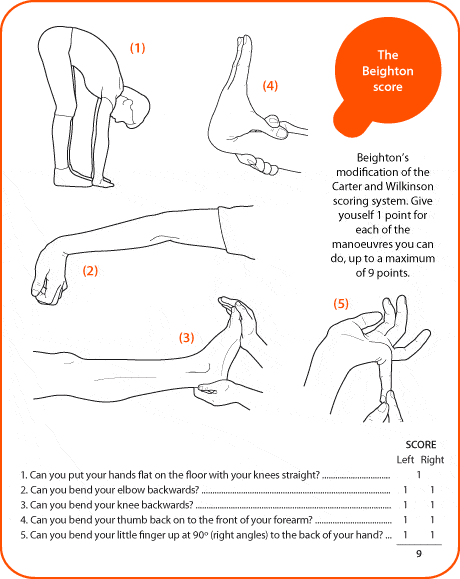Joint hypermobility
Joint hypermobility is commonly referred to as ‘double-jointedness’ or ‘floppy joints’ and is quite common in childhood, affecting up to 15% of school children.
The Beighton Score is a simple screening technique used by health professionals to assess whether a child has signs of widespread joint hypermobility. The Beighton Score is calculated using a simple 9-point scale, with a score allocated to each joint that displays more motion than it should.
The joints that are tested when assessing the Beighton Score include the elbows, knees, fingers, wrists and lower back, as shown in the image below.
A Beighton Score of 4 or more out of 9 means your child probably has joint hypermobility.


